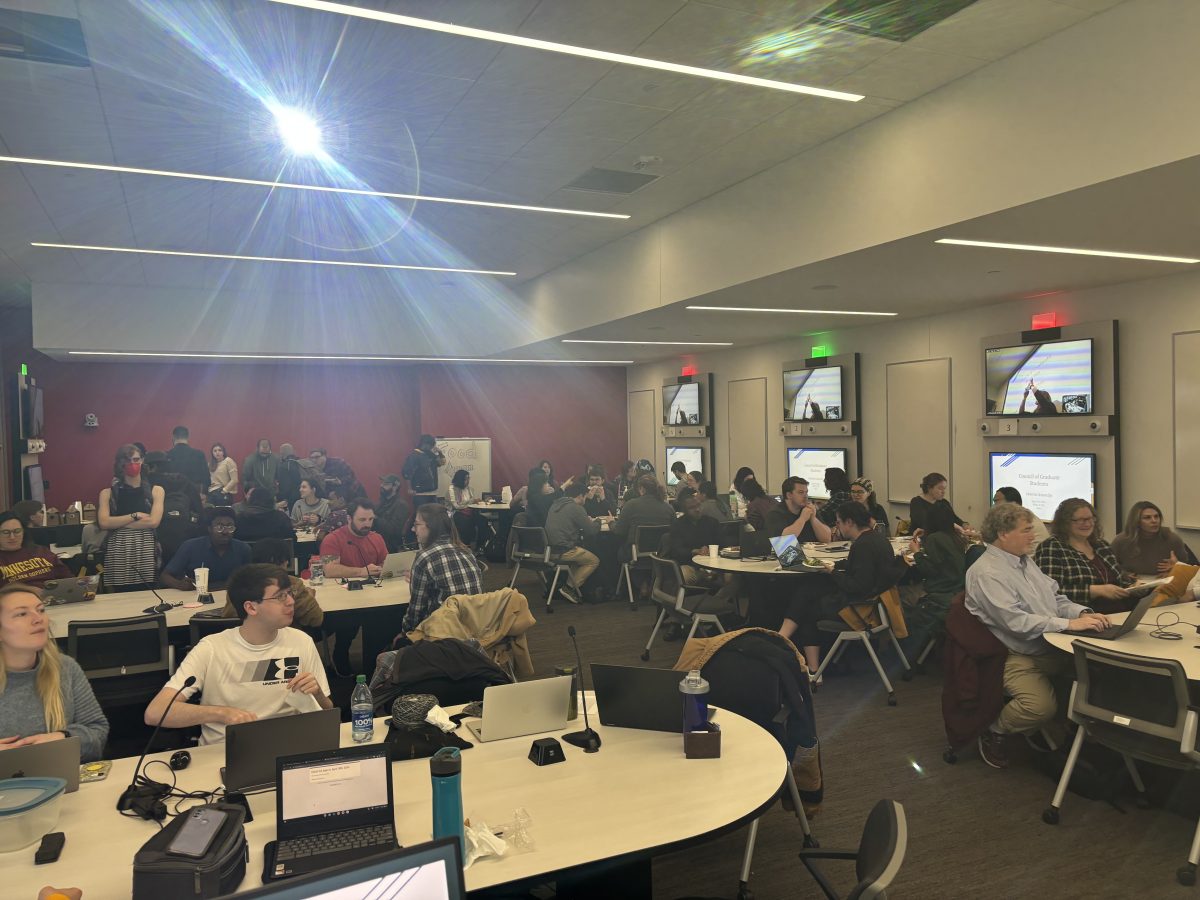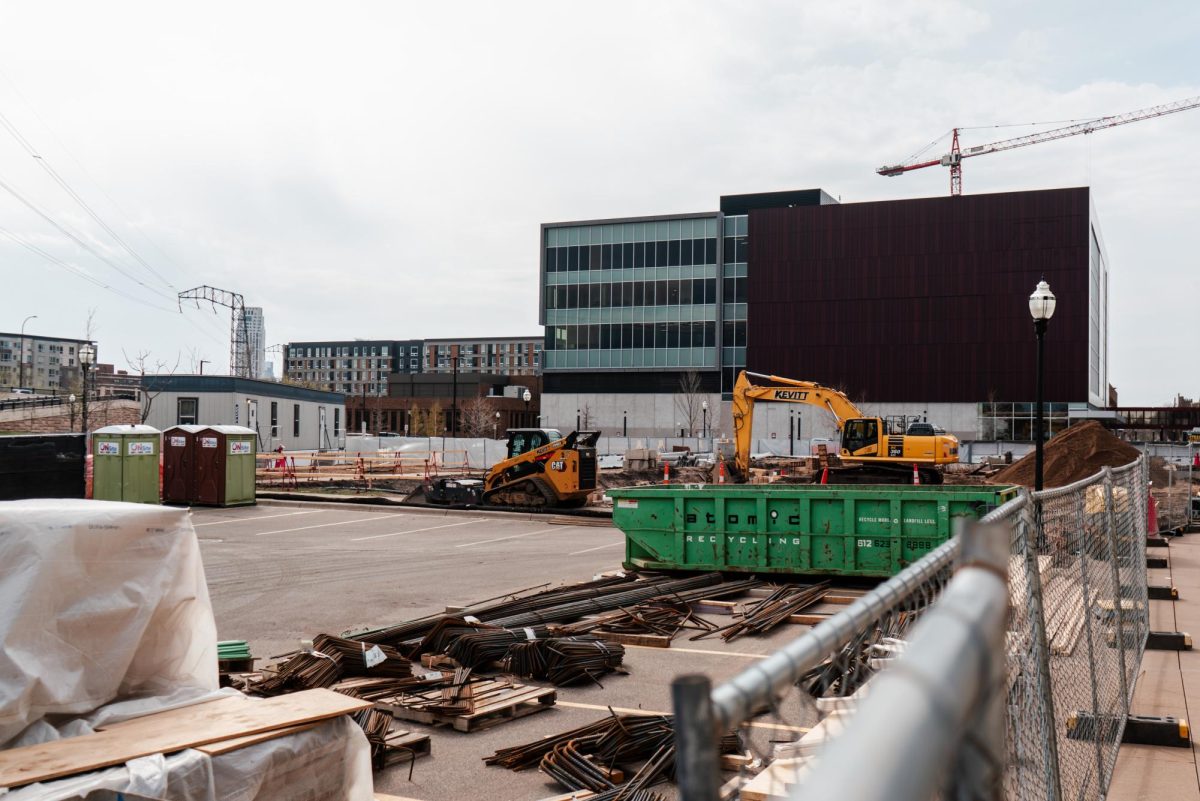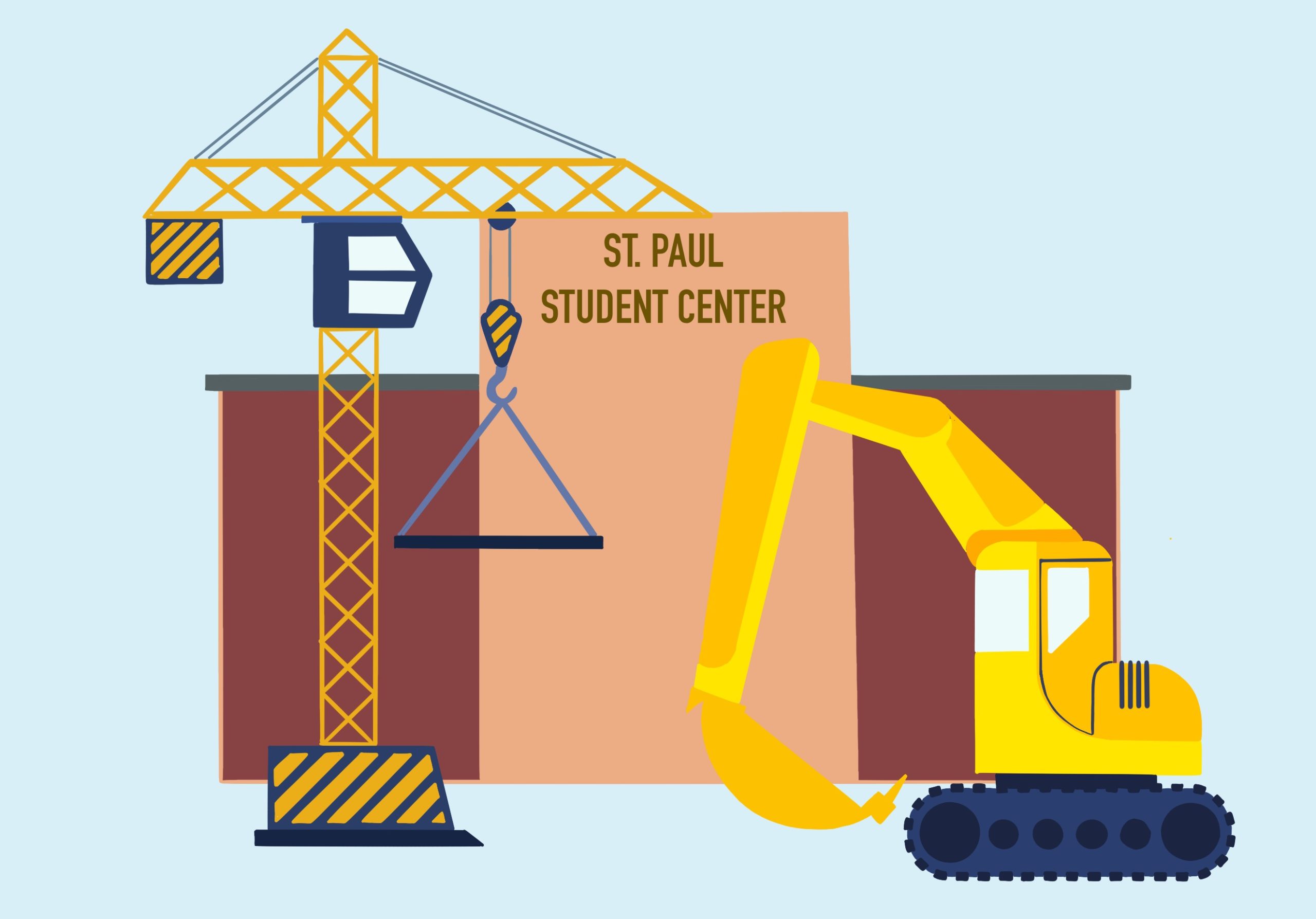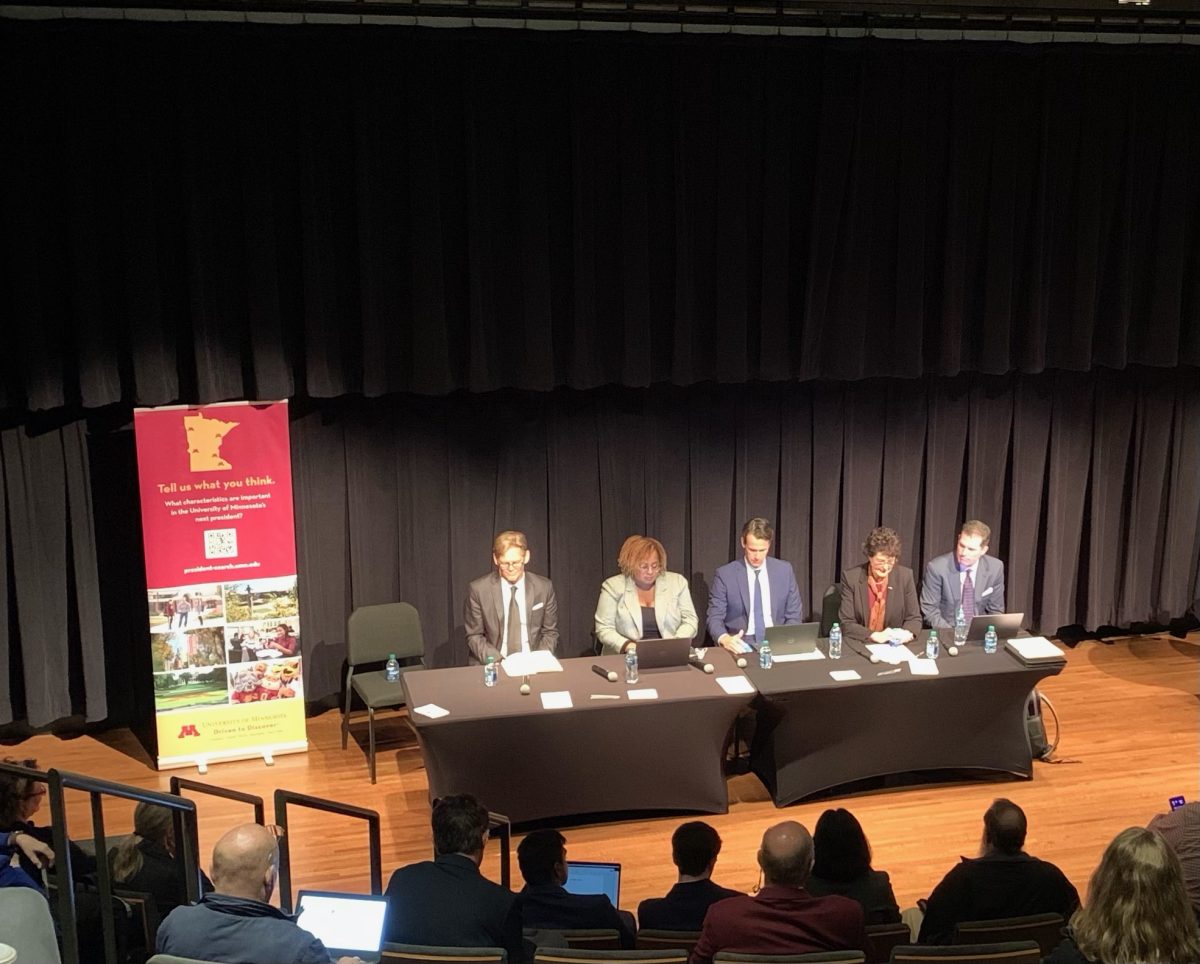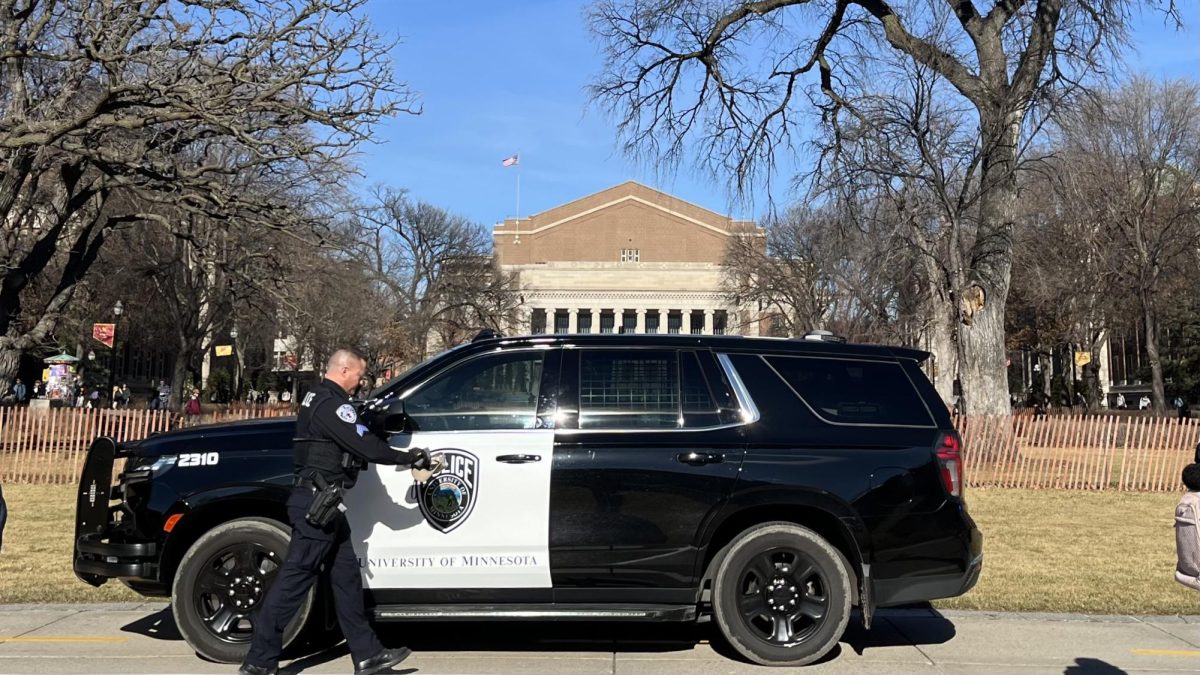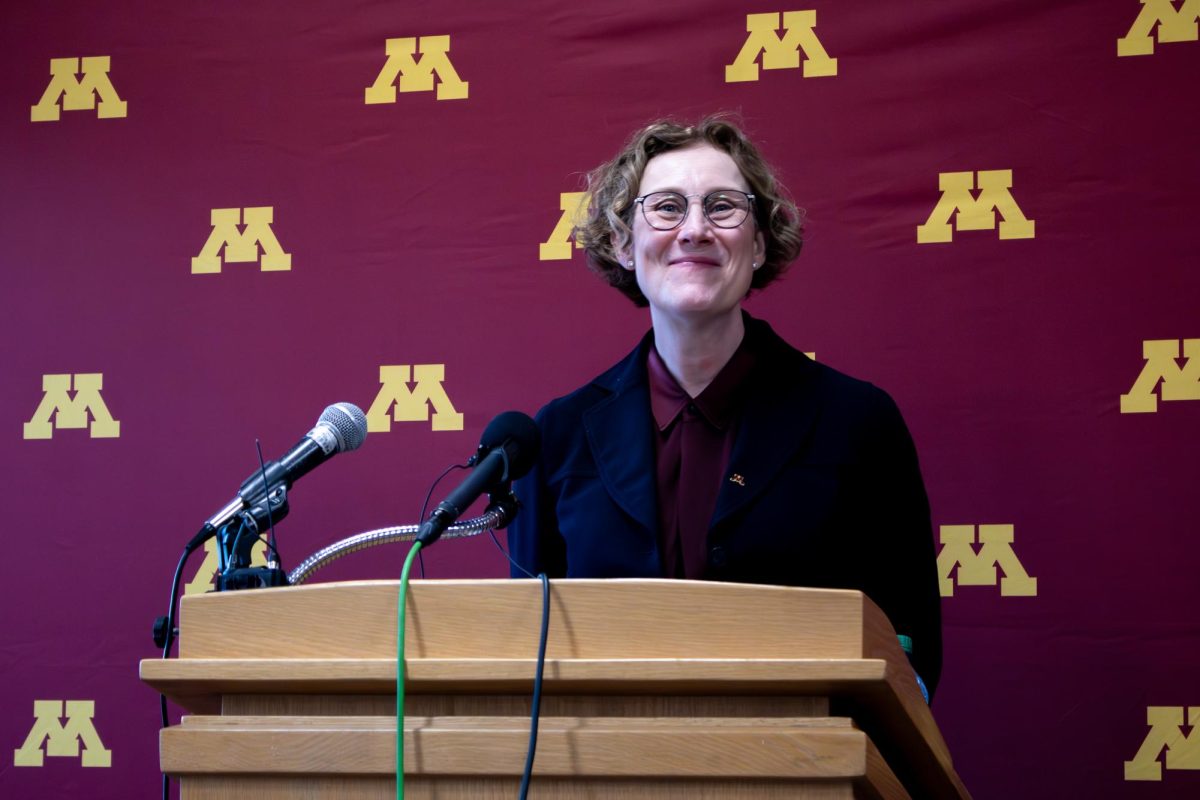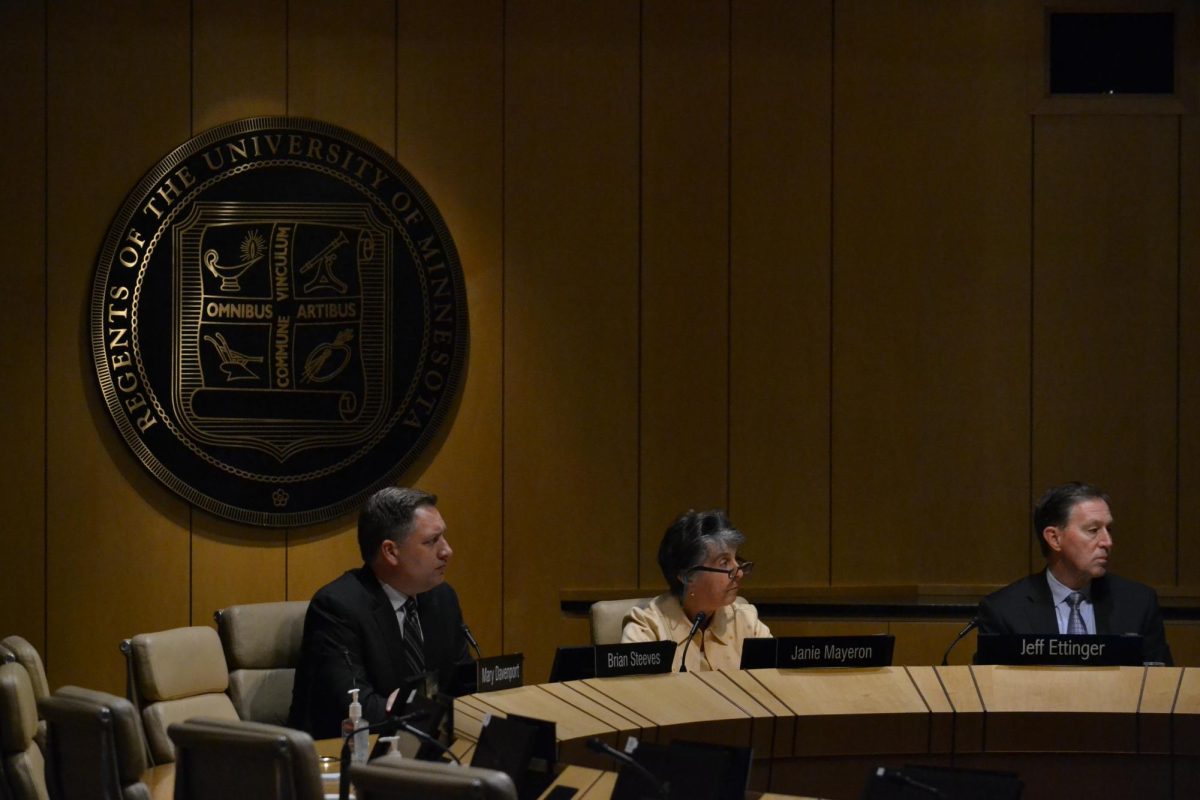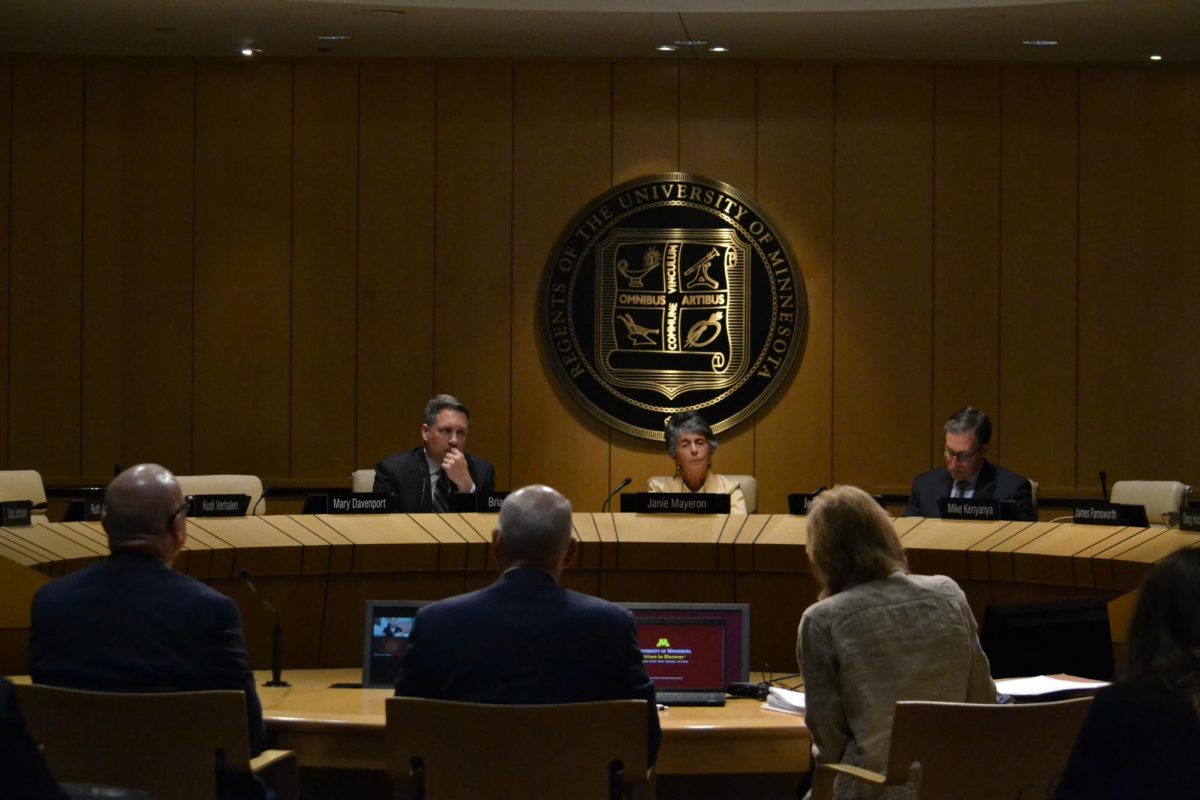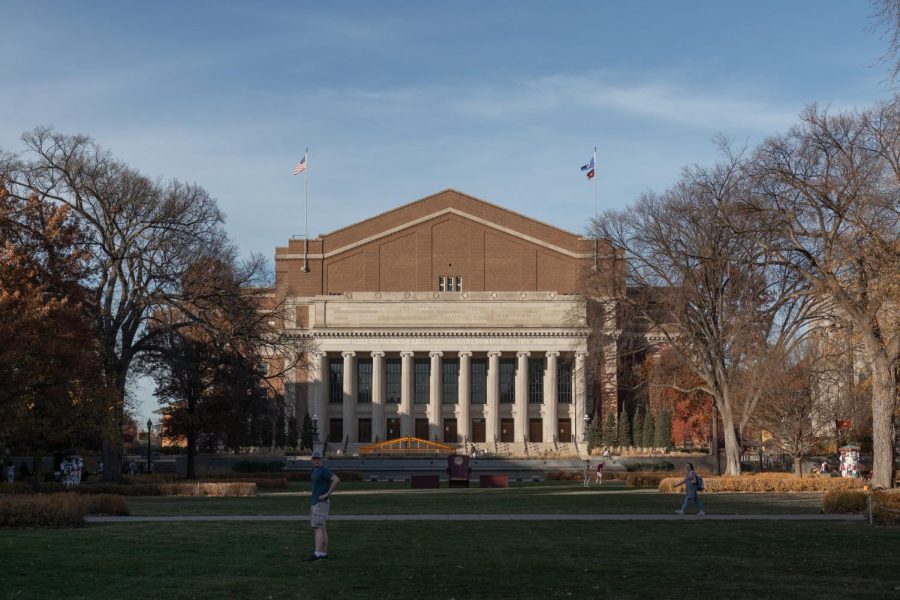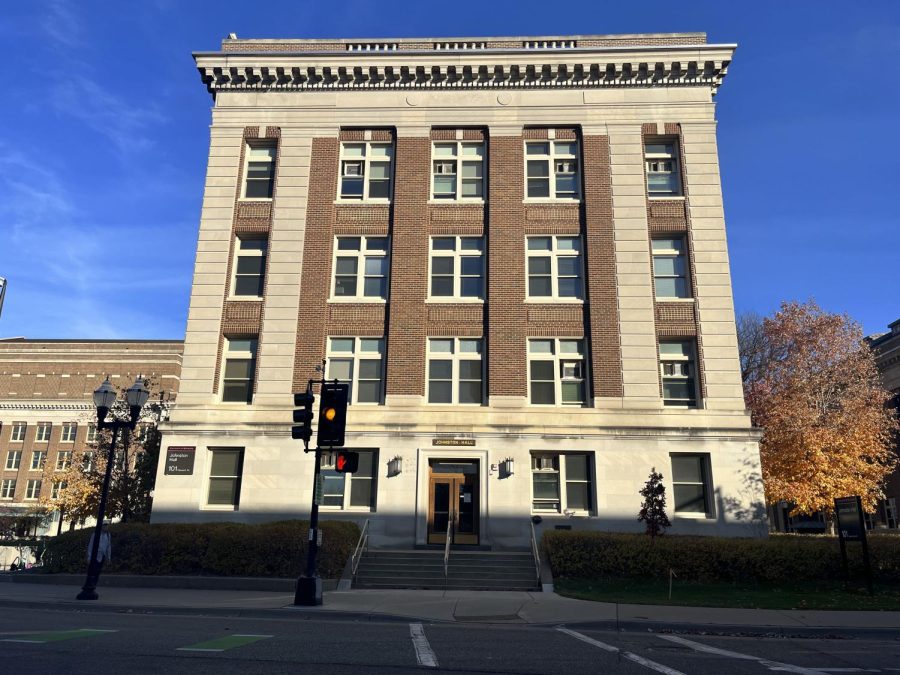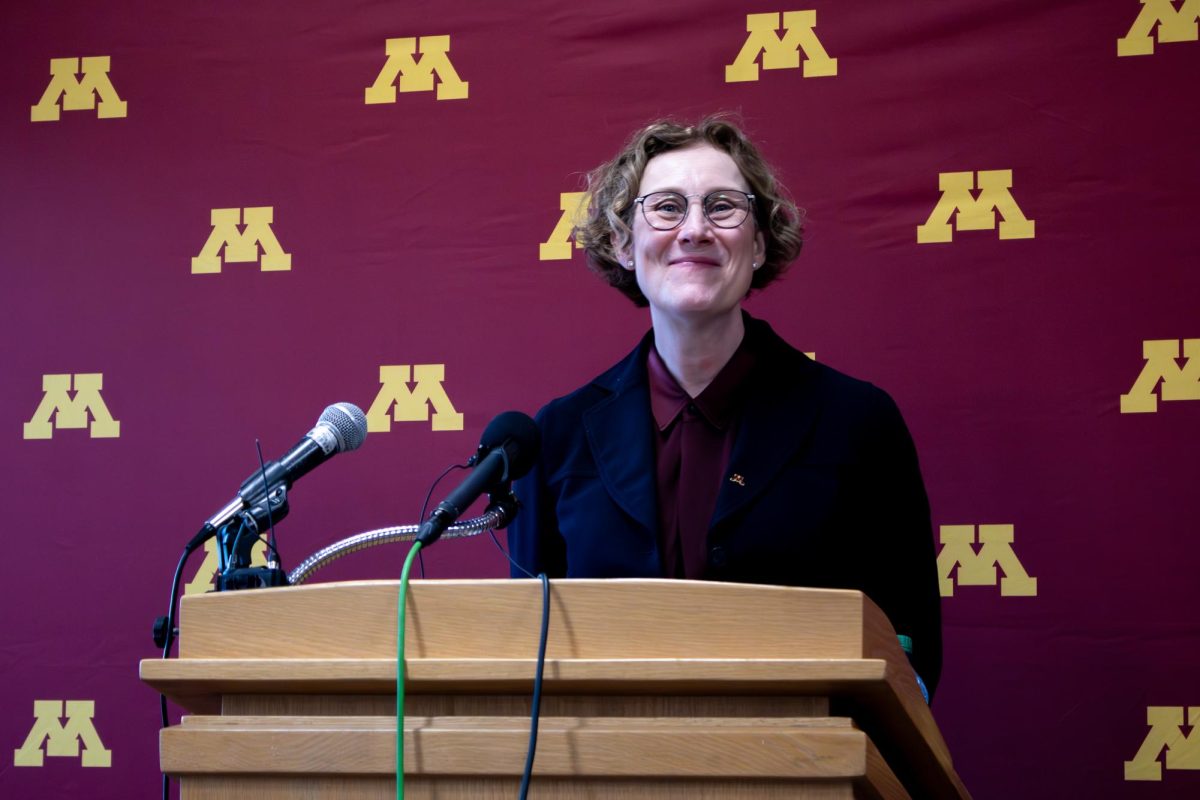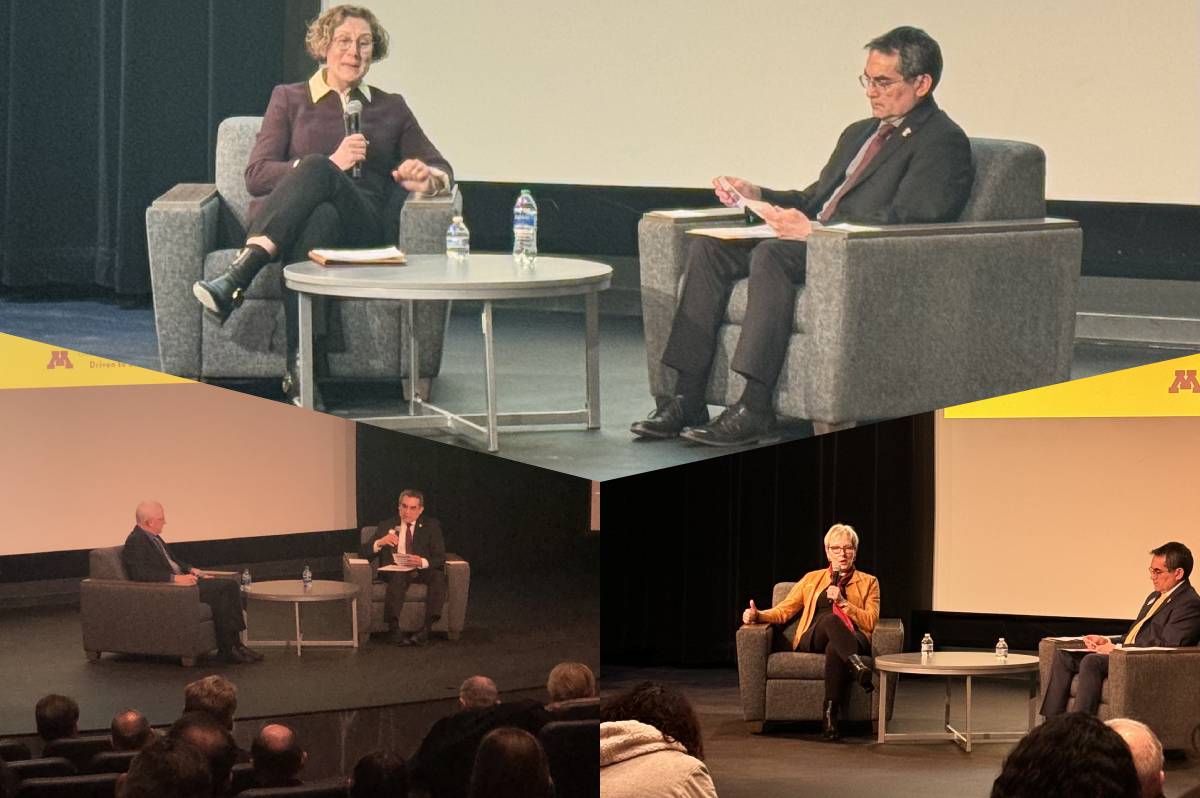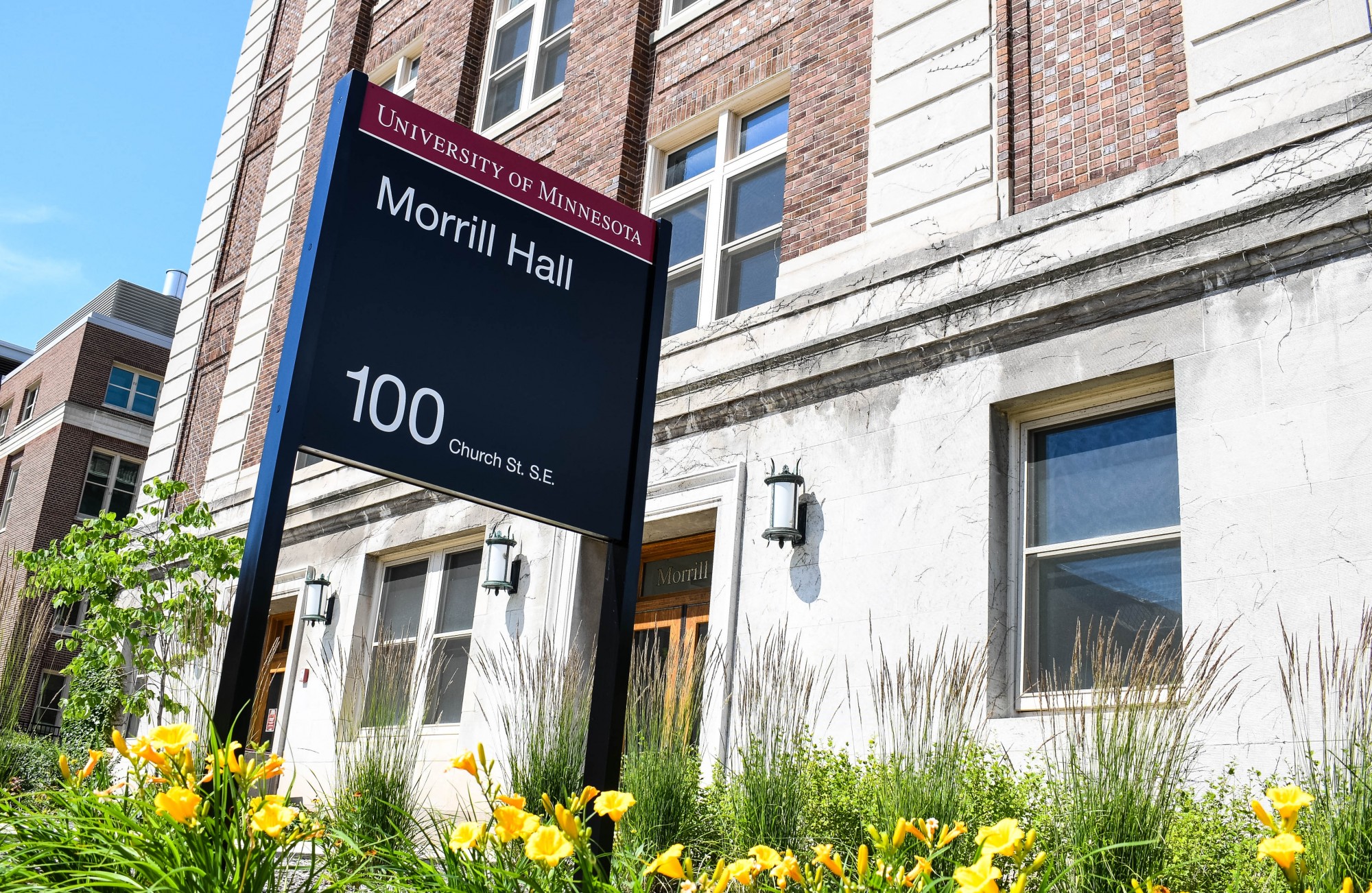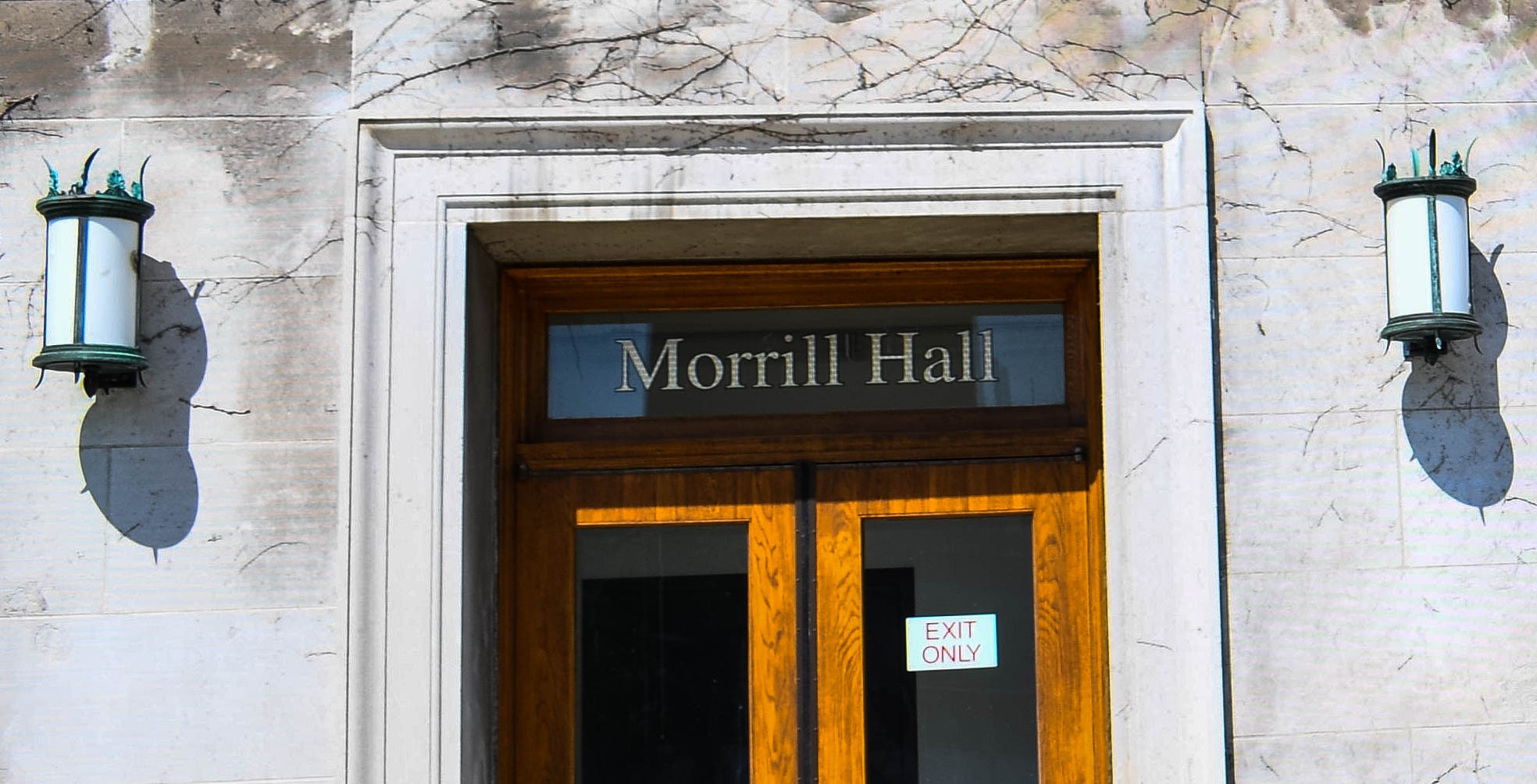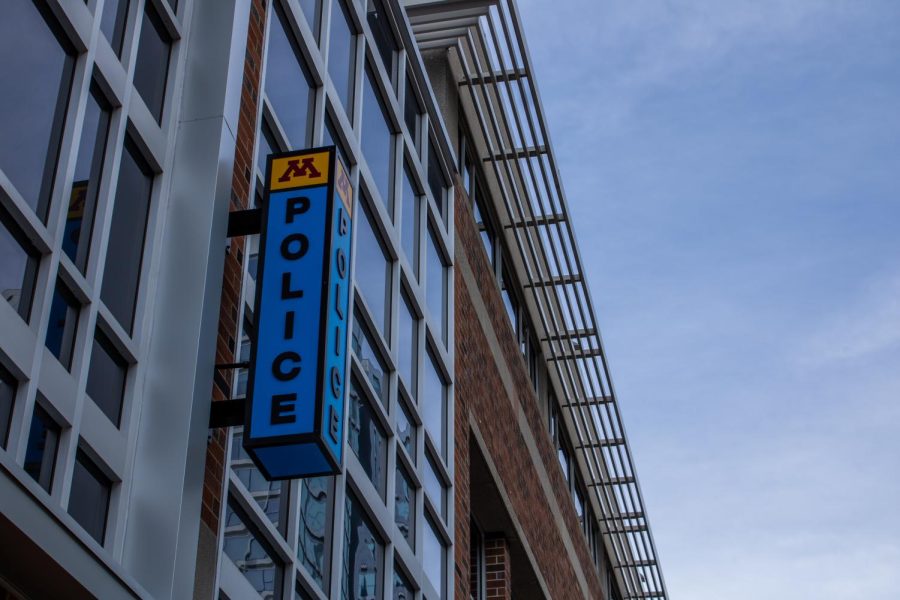The Presidential Search Advisory Committee (PSAC) held seven listening sessions over the past two weeks to encourage students and faculty to speak on what they would like to see from the next University of Minnesota president.
The Board of Regents tasked PSAC at the October meeting to listen to student, faculty, staff and other University voices, generate a profile for potential presidential candidates and present the board with two to four finalists.
Regent Mary Davenport, chair of PSAC, said it is important to have a search committee made up of diverse voices and viewpoints. The goal of the search committee is to find the person who would be the best fit for the University.
“This position is the position in academia that’s out there,” Davenport said. “There are a lot of opportunities to take this University to the next level and excel.”
At the Oct. 20 listening session, Davenport was absent from the first half because she had broken off with the student representatives from the committee to talk to students directly at Coffman Memorial Union.
Davenport was originally supposed to sit in on the listening session, but the trip to Coffman was a last-minute change. She said it was a way of gathering more student input due to a lack of student presence at the meeting on Oct. 17.
One of the most common themes Davenport said she heard from students was how they wanted a president who would connect with their students.
“Students want to know who their president is,” Davenport said. “They want a president that’s visible and that listens to the students.”
Davenport added that speakers from listening sessions at other University campuses systemwide had praised Interim President Jeff Ettinger for his frequent visits to non-Twin Cities campuses.
According to Davenport, the people who spoke wanted to see a similar level of engagement from the next president.
Gurasis Singh, a member of the University’s Undergraduate Student Government, went to the Oct. 17 listening session. He said the next president should have a greater presence on campus and engage more with the community.
Singh added he would like to see the next president make the University’s administration more accessible and understandable to students and staff.
According to Singh, understanding how the University operates would make it easier for students to navigate the University’s systems and advocate for change.
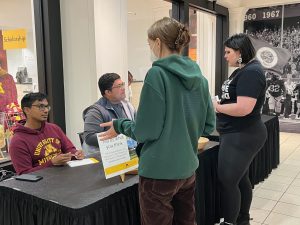
Singh said he tried to connect with the Office of Student Affairs (OSA) to talk about some problems he was having with the dining system but later found out OSA did not manage university dining. His experience inspired him to push for change.
“It sounds little, but when you’re trying to make changes and direct up the stream of policymakers, it doesn’t make sense,” Singh said.
Cal Mergendahl, a graduate student at the University, said at the Oct. 17 session they believe the next president should not just focus on the Twin Cities campus.
Mergendahl, who spent their time as an undergraduate student on the Morris campus, said there was a disconnect between the rural campuses and the Twin Cities.
According to Mergendahl, making room for the president to listen to graduate students and students from other campuses outside of the Twin Cities would foster a sense of community systemwide.
“Too often people have gotten into a sense of, ‘It doesn’t matter, they won’t listen anyways,’ and fighting that apathy has been a challenge,” Mergendahl said.
The Oct. 20 listening session heard opinions from faculty members, ranging from ones who started recently to tenured ones.
Eva von Dassow, a professor of classic and Near Eastern religions, said she wanted the next president to have recent experience in fulfilling the University’s mission of teaching, research and engaging with the community.
Von Dassow said fostering relationships in the community would help with the state legislature. State legislators look at the University and do not see an institution where funds are well-allocated.
The way legislators view the University affects state funding and causes the University to raise tuition, von Dassow said.
Von Dassow added students either choose a cheaper university or a major they may not want to study that guarantees a high-paying job to pay back student loans. The next president needs to change the funding system to stop this “feedback loop.”
“We can’t treat the students as ATMs,” von Dassow said. “The funding structure has got to be different than what it is now so that our students are not so constrained when they come here.”
The public listening sessions have concluded, but Davenport and Chris Uggen, vice chair of PSAC, are holding individual listening sessions with other groups like alumni and state legislators.
The committee will review applicants and submit their recommendations to the Board of Regents by late January. The Board will discuss their choices of finalists during the February meeting, and open forums with the finalists will be held systemwide for the rest of the month.
PSAC will select the next president by late February or early March.
Students and faculty who still want to voice their opinions can submit comments through the Board of Regents’ public virtual forum.
“I want to say to you, ‘Just trust us,’ but test us,” Davenport said at the first listening session. “I hope you’re feeling, we’re listening because we want to hear you.”



